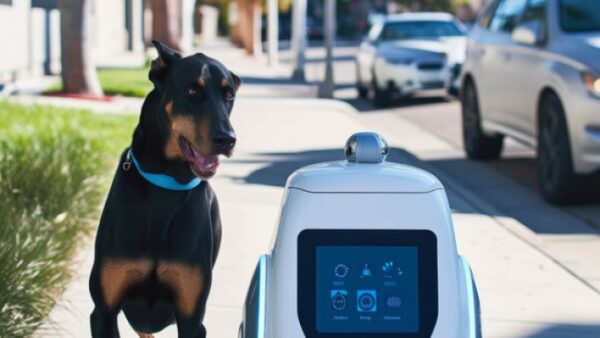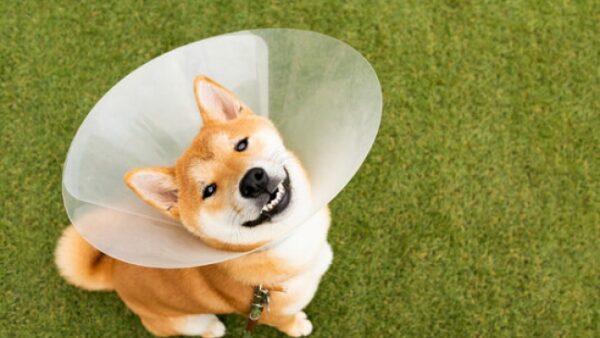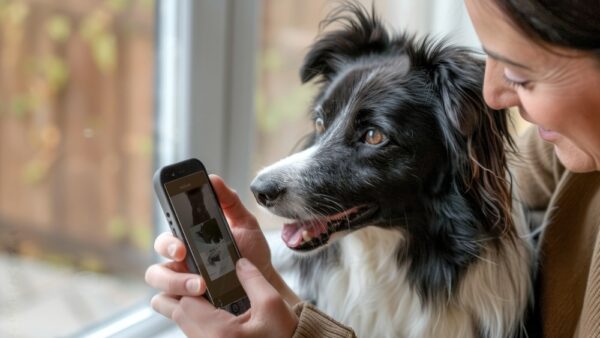If you want to get a puppy, there are some things you should think about first. Their health, of course, is one of the most important things to keep an eye on.
Sometimes, we might fall in love with a dog, only to find out later that it has a problem, like an umbilical hernia.
Then you might be wondering, “Should I buy a puppy with an umbilical hernia?”
In this article, we have revealed the answer to the question above. You will also get to learn everything about umbilical hernia and whether or not it is fatal to dogs.
Without further ado, let’s dive in!
What is an Umbilical Hernia
Before a puppy is born, it gets food through its umbilical cord from its mother. This is what links the puppy to the uterus of its mother.
When the puppy comes into the world, the umbilical cord is no longer needed. So, the mother normally chews off the cord, or the breeder cuts it off and seals it.
The puppy’s belly button is made up of what’s left of the umbilical cord.
Sometimes, the place where the umbilical cord is cut doesn’t completely heal. An abdominal hernia is the name for this problem.
Should I Buy a Puppy with an Umbilical Hernia?

Umbilical hernias are one of the most common types of hernias in dogs.
Most are not dangerous or can be fixed quickly with surgery. Whether or not you should buy a puppy with an umbilical hernia relies on how big it is.
To put it simply, if the puppy has a relatively small hernia, it should be fine and can be fixed naturally, or with a quick surgery.
Puppies with bigger umbilical hernias that keep getting worse and make the puppy look upset or hurt when touched are likely to have bigger and more serious problems in the future, which will cost you more money and care.
Types of Puppy Hernias
Five types of hernia affect canines majorly. These hernias range from mild to severe and most of them are treatable with veterinary care.
One of the most common kinds of hernia in dogs is the umbilical hernia. This hernia appears as a protrusion from a hole in the dog’s abdominal region.
The hole also known as the umbilical ring ought to be closed after the dog was born. However, due to certain reasons, it remains open making vital organs, tissues, and intestines protrude outside.
Umbilical hernia can easily be treated in puppies if the hole is very small. Sometimes it may even close up by itself. However, if the hole is big enough to allow the dog’s vital organs to protrude outside, the hernia is rendered fatal, and it will require urgent surgery or stitches.
Other Kinds of Dog Hernias
Most dogs have umbilical hernias, which are the most common kind. But dogs can get hernias in other places as well.
Inguinal Hernias
Inguinal hernias are found in the groin of a dog. Depending on where they are and how big they are, they can be mild or even deadly.
If the dog’s intestines, bladder, or uterus are pushed through the hernia hole, it can cause a life-threatening inguinal hernia. The dog will need surgery to save its life.
Most of the time, inguinal hernias happen in older female dogs. Pregnant dogs are also at higher risk.
Perineal hernias
Perineal hernias happen in the pelvis, and the normal patient is a male dog between the ages of 5 and 10 that has not been neutered.
Diaphragmatic hernia
When a dog has a diaphragmatic hernia, the abdominal organs can move through the diaphragm and into the chest area. This can make it hard for the dog to breathe properly.
This kind of hernia can be caused by a genetic flaw or a physical injury, like getting hit by a car.
Hiatal hernias
When the stomach pushes through the esophagus and into the chest, this is called a hiatal hernia.
They are like diaphragmatic hernias in that a dog can have one from birth or because of an accident.
Symptoms of an Umbilical Hernia
In some cases, umbilical hernia can be difficult to detect because the dog does not show any negative signs or discomfort.
Although, when your dog walks, you should be able to notice the protrusion of tissues from his abdominal area.
Here are some of the symptoms of umbilical hernia in dogs:
- There is a soft bump where the umbilical cord was.
- Your puppy feels pain when you touch his abdominal area.
- Drooling and Coughing
- Loss of Appetite
- Feverish condition
- Vomiting
Signs of a Strangulated Hernia
The umbilical ring of a puppy with a hernia is always opened. Thereby allowing the protrusion of tissues and vital organs through it.
If a tissue protruding outside of the hole is deprived of oxygen or oxygen is not able to flow well to the herniated tissue because it is protruding outside, the tissue may die and this may become fatal to your dog. This case is what is referred to as strangulated hernia.
According to Race Foster, DVM, in rare cases, a hernia can become dangerous if the blood supply to the herniated tissue is restricted or cut off. This is called a “strangulated hernia,” and if the tissue dies, it can cause very bad things to happen.
Here are some of the symptoms of strangulated hernia in dogs:
- The hernia swells up excess
- Fever
- Lethargy
- Severe pain
- Refusing to eat or throwing up after eating
- An abscess forms at the spot
How Bad Is It When a Puppy Has an Umbilical Hernia?
To figure out how bad your puppy’s hernia is, you need to pay close attention to its current size and any changes it makes.
This is the main thing that determines whether or not there will be major problems in the future.
If your furry friend has a hernia that is bigger than 0.4 inches, you should take care of it before he or she is 4 months old.
This is done with a small amount of surgery. You should only go back to surgery if the hernia doesn’t get better on its own.
On the other hand, hernias that are smaller than this are unlikely to cause your puppy any trouble or pain. In some cases, they even close off on their own.
In this case, you might be better off just leaving it alone and not getting surgery.
But if you do this, you should keep a close eye on it and take your puppy to the vet often for checkups.
Also, keep an eye out for any changes in how your dog acts.
Can a Puppy Umbilical Hernia Heal by Itself?

A hernia can sometimes heal on its own, but how to treat an abdominal hernia in a dog depends on how bad it is.
From what VCA Hospitals says: When a puppy is four months old, hernias that are less than one centimeter in size may heal on their own.
If a hernia doesn’t heal by the time a baby is four months old, surgery should be done to fix it.
During surgery, the jutting tissue is gently pushed back through the hole, and the hole is then stitched shut.
Vets usually recommend doing the surgery together with spaying or neutering your dog. This will help reduce cost and also prevent your dog from taking anesthetic twice.
Most of the time, it is included in the cost of the spay/neuter for no extra charge or an extra $100-$200 because the surgery takes longer and needs more tools.
If the hernia surgery is done separately from the sterilization surgery, you can expect to pay between $300 and $700 if the dog is healthy and the operation is planned.
If your dog has an umbilical hernia, you should take them to the vet as soon as possible to find out how bad it is.
There are no home remedies for umbilical hernias, so the best thing you can do for your puppy’s health is to listen to your vet.
When Should You Visit a vet
Even though a small umbilical hernia might heal on its own or never cause your pet any trouble, it could always get bigger and cause your pet to suffocate.
Get your dog checked out just to be safe. Don’t risk it. Just to be safe, it’s normally best to plan on surgery. Talk to your vet, do what they say, and give your puppy the best chance to live a normal, happy life.
Conclusion
Acquiring a puppy with an umbilical hernia can be a gratifying experience, but it requires thoughtful deliberation of the potential risks, advantages, and financial commitments involved in their treatment.
You also have to be prepared emotionally since these dogs may have a shorter life expectancy compared to healthy puppies.
Apart from emotional preparedness, you have to be prepared financially because buying or adopting this puppy will surely cost you some money in the long run. They will surely require surgery and maybe a special dietary requirement which will cost you some money.
By considering these factors, you should be able to make an informed decision on whether you should buy a puppy with an umbilical hernia or not.







Leave a comment